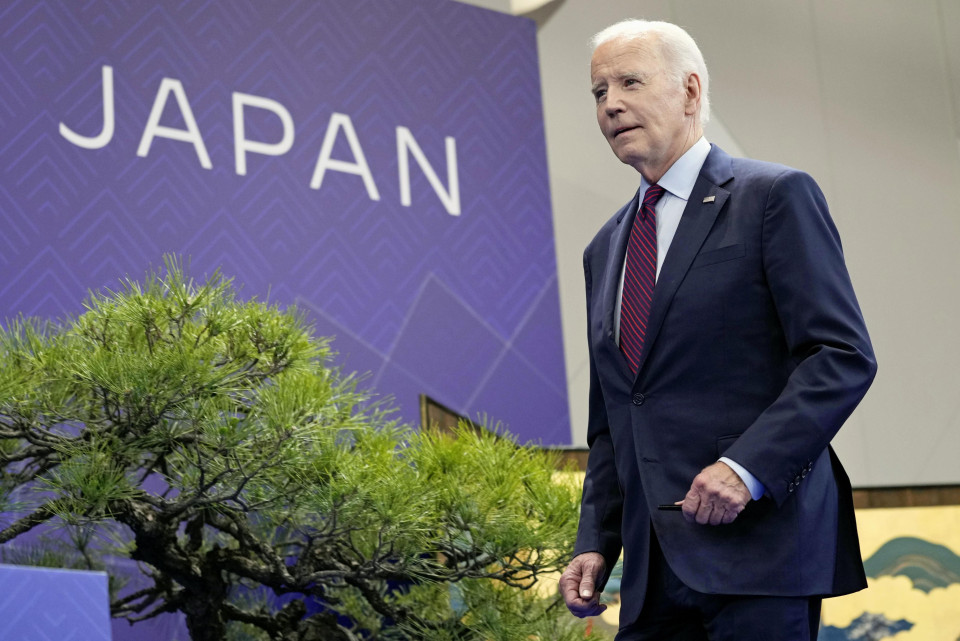U.S. President Joe Biden said Sunday he believes that heightened tensions between the United States and China will "thaw very shortly."
At a press conference in Hiroshima, Biden expressed disappointment that a Chinese spy balloon incident earlier this year spoiled the momentum to facilitate communication between senior officials of the two countries.
He said a previous agreement with Chinese President Xi Jinping on the importance of implementing a military hotline had rapidly soured in the wake of the balloon controversy as tensions escalated.
"I think you're going to see that begin to thaw very shortly," Biden said before leaving the Japanese city, where he attended the Group of Seven summit and held talks with many leaders, including Ukrainian President Volodymyr Zelenskyy.

In early February, U.S. Secretary of State Antony Blinken abruptly postponed his planned visit to Beijing after Washington detected what it described as a Chinese spy balloon traveling over sensitive areas of the continental United States.
The trip was intended as a follow-up to an in-person meeting between Biden and Xi Jinping in November. It would have been the first visit to China by a ministerial-level official from Washington since the current U.S. administration's inception in 2021.
There have been no signs of easing tensions, but White House National Security Adviser Jake Sullivan and Wang Yi, China's highest-ranking diplomat, held hours of "candid" discussions on key issues in Vienna earlier this month.
At the time, the U.S. and Chinese governments said they agreed to keep lines of communication open.
In his press conference before returning home, Biden also mentioned Taiwan, a major source of friction between China and the United States. He stressed that Washington's decades-old policy toward the democratic island remains intact, pointing out it does not expect that Taiwan will "independently" declare itself a sovereign, independent state.
He added, "We're going to continue to put Taiwan in a position that they can defend themselves and there is clear understanding among most of our allies that in fact if China were to act unilaterally, there would be a response."
Recalling his four days in Hiroshima, Biden said being in the city and visiting places such as the Peace Memorial Museum was a "powerful reminder of the devastating reality of nuclear war and our shared responsibility to never cease our efforts to build for peace."
Biden said he and other G-7 leaders reiterated "our commitment to continue to work toward a world free from the threat of nuclear weapons."
Related coverage:
Biden invites Japanese, S. Korean leaders for 3-way talks in U.S.
FOCUS: G-7 renews pledge to defend int'l order, yet China challenges loom











